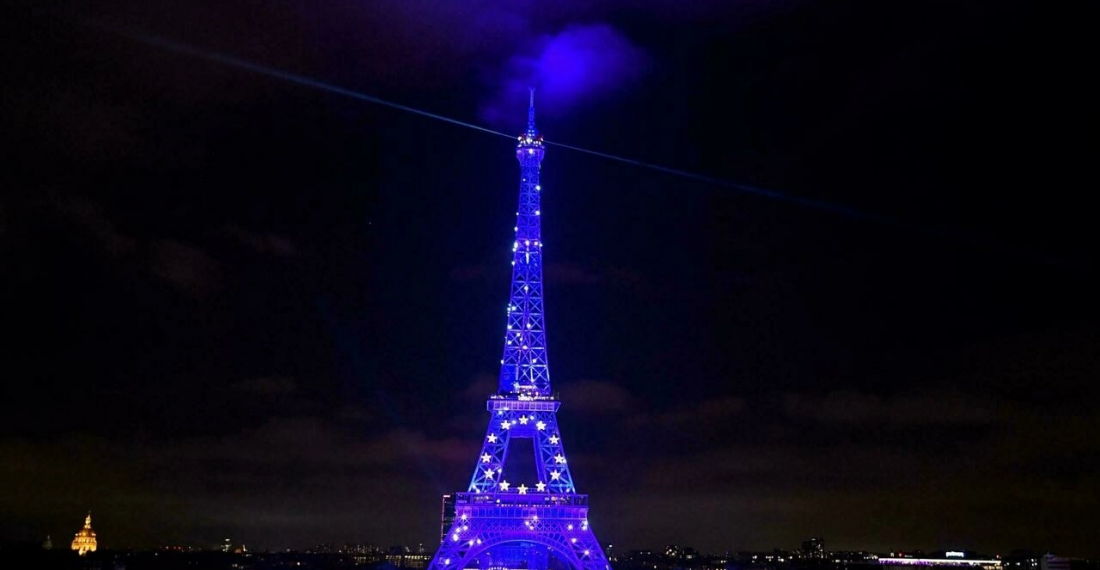The Eiffel Tower in Paris was lit in the colours of the European flag on Saturday ( 1 January) as France took over the six-month rotating presidency of the European Union.
In a televised address shortly before midnight on new Year's Eve, French President Emmanuel Macron said that 2022 should be a "turning point" for the European Union. Macron hailed the EU's role in securing vaccines against Covid-19 for the continent and in providing funds for national stimulus plans which are set to be rolled out in 2022.
"The year 2022 must be a turning point for Europe," he said in a 13-minute speech recorded in the garden of the Elysee presidential palace. "Our continent has been decried so much in recent years. They say it's divided, incapable of collective projects, in the process of becoming a historical irrelevance."
The Covid-19 crisis "has demonstrated that our Europe can be not only useful but also a source of hope," he said. Referring to the upcoming Frencu EU presidency Macron said, "You can count on my complete commitment to ensure that this period, which comes around every 13 years, is a time of progress for you." He listed the top priorities for the French presidency, including border control, European defence, climate change and gender equality.
To mark the start of the six-month EU presidency, historic buildings across France were illuminated in the blue of the EU flag on New Year's Eve, including the Elysee Palace and the Eiffel Tower.
On the Covid-19 crisis in France, which has seen the country record more than 200,000 daily infections this week, Macron said that "there will be difficult weeks ahead" but that 2022 would "perhaps be the year we leave the pandemic behind."
Thanks to France's high vaccination rate, "we can overcome this wave", he said.
The government cancelled its traditional New Year's Eve fireworks show in Paris, while nightclubs have been closed nation-wide and dancing has been banned in bars.
Mandatory mask-wearing outside has also returned in major cities such as Paris, but there are no curfews or restrictions on gatherings at homes.
Turning to the upcoming presidential elections in France in April election, Macron ended with a call for the country to remain "united" and to "continue to respect our differences" in veiled criticism of his far-right nationalist opponents Marine Le Pen and Eric Zemmour who he sees as fomenting divisions.
"Stay united, benevolent and together," he urged, before ending with "Long live our Europe, the republic and France."






